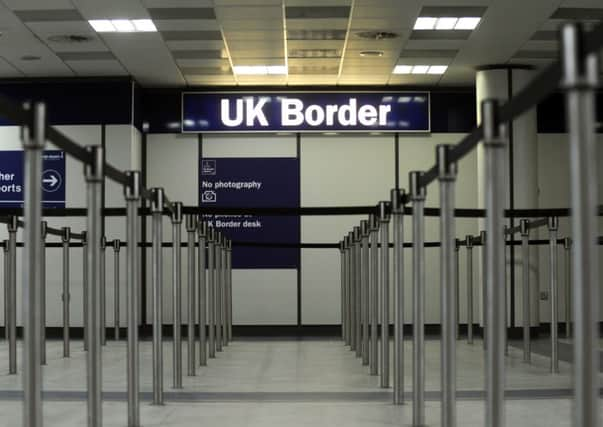Michael Fry: Open door immigration pragmatism


Old, unhappy societies tend to lose emigrants; young, optimistic societies tend to receive immigrants and indeed welcome them. At least this is a generalisation that holds true for much of human history.
The most salient example at the present day is the difference between the United States and the European countries from which most Americans’ ancestors came.
Advertisement
Hide AdAdvertisement
Hide AdEven now, the great republic across the Atlantic Ocean remains the sweet land of liberty, the prime destination for the world’s migrants, though in the 21st century, the huddled masses yearning to breathe free usually arrive from Latin America and Asia.
In that sense, the US, while its 200th birthday lies some way behind it, remains in spirit a young, optimistic society, and nobody who goes there can doubt it.
Europe, by contrast, seems to have passed from old age to decrepitude, though thatdoes not stop some of its nations exhibiting a renewed lust for life since theyliberated themselves from Communism.
Is it going too far to say that the same sort of difference exists, or is coming into existence, between England and Scotland?
England is an old society, a pretty tired one, still finding it hard to redefine its post-imperial role in the world and certainly not happy with its experience of immigration. Grimy suburbs of Manchester or Birmingham or, above all, London strike some native English people as scarcely belonging to their country, rather as extensions of Pakistan or Jamaica.
In turn, the experience of the immigrants is often no happier, given the poverty and prejudice that are their frequent lot.
Here is the formula for the ghetto, first its disenchantment and then its violence.
In Scotland, we do not have ghettos. While it would be going too far to say we do not have racial prejudice, it does not act on our society so as to generate a geographical concentration of misery and resentment or the extreme human reactions against it.
Advertisement
Hide AdAdvertisement
Hide AdThe obvious reason is we do not have all that many immigrants, and those we do have are not obviously made unwelcome. Their integration may fall short of entirety, but it is extensive. So the problems are subdued and controlled. Would this change if we had more immigrants?
The question arises because the First Minister says he would be happy to see more immigrants. That marks him out starkly from politicians at Westminster, many falling over each other to demonstrate their anti-immigrant toughness.
Not that it seems to have had much practical effect so far.
The latest figures show a surge in the number of Romanians and Bulgarians arriving in Britain.